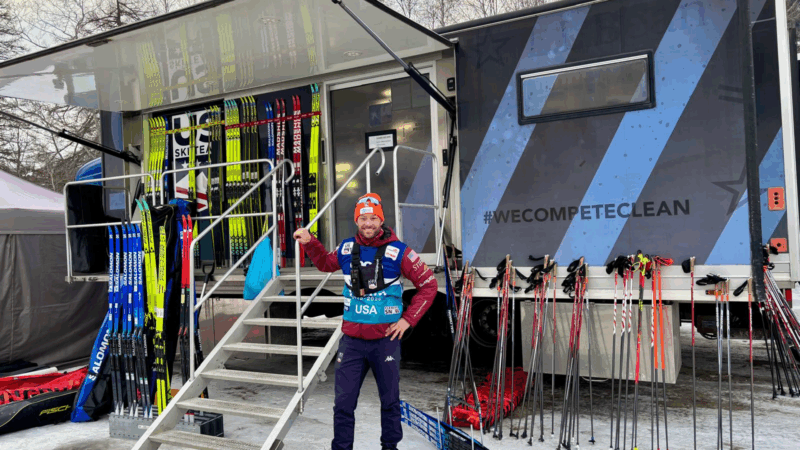Alabama Utility Commission To Consider Ban on Recording Meetings
When Laura Casey attended a highly-anticipated hearing of the Alabama Public Service Commission (PSC) in November, she wanted to record it for people who couldn’t be there.
“My understanding was that the Open Meetings Act, which is the law of the state of Alabama, allows people to record their public officials in action,” said Casey, who is the Democratic candidate for commission president this year.
But PSC officials ordered her to stop recording and ejected her from the room. Casey filed a lawsuit accusing the commission of violating the state’s Open Meetings Act. In the suit, the PSC said formal hearings are not meetings, so the commission is not required to let people record them. A Montgomery circuit court judge agreed, ruling that because commissioners did not “deliberate” during the hearing, it doesn’t qualify as a “meeting.”
Now the PSC is formalizing that stance and adding additional restrictions with its proposed Media Coverage Plan. Under the new rules, people can not live stream or even update social media during formal hearings. News organizations must request permission to record or photograph at least five days in advance, and all parties involved in the hearing must allow it. Any party can also ask to stop the recording at any time during the hearing.
Frank LoMonte, media law professor at the University of Florida and director of the Brechner Center for Freedom of Information, said the restrictions are similar to those of judicial bodies and trial courts.
“That would be a very unusual and extreme policy for any type of an executive branch agency,” LoMonte said.
He said the Public Service Commission, which regulates state utilities, is governed by Alabama’s Open Meetings Act, whether it is conducting a meeting or a hearing.
“The state Open Meetings Act is very clear that the right to attend the meeting includes the right to non-disruptively make a recording of it,” LoMonte said.
The Alabama Broadcasters Association, Alabama Press Association and AL.com are in agreement. In comments submitted to the PSC, the groups said the commission does not have the legal authority to prohibit recordings or require consent from all parties in a hearing.
“This veto power places unprecedented authority in the hands of a select few persons and is clearly meant to suppress public scrutiny based on a single vote,” the groups wrote.
The PSC adopted the Media Coverage Plan on an interim basis in March, days before hearings began regarding Alabama Power’s proposed $1.1 billion expansion. The commission wrote that it decided to temporarily adopt the plan “after due consideration of the current state of technology and the potential impact that recording and broadcasting can have on formal hearings.” It said the new rules will help “preserve the integrity” of formal hearings.
Laura Casey, who is appealing the trial court’s decision rejecting her lawsuit against the PSC, said the plan further limits transparency of the state’s regulatory agency.
“They are effectively shutting down the Public Service Commission to the public,” Casey said.
The commission will accept comments on the media plan through Friday and will later vote on permanently adopting the rules at a monthly meeting.
PSC officials declined to be interviewed for this story.
The U.S. falters again in figure skating, but the women still have time to make it up
Alysa Liu finished the night in third place, Isabeau Levito finished in eighth and Amber Glenn is in 13th place after a popped jump. That puts extra pressure on all of them for Thursday's medal event.
Meet Yolanda the wax truck, Team USA’s unsung cross-country ski hero
Fast skiers require fast skis. They rely on a team of technicians to wax and prep them for each day's conditions. The U.S. cross-country team has a mobile ski shop that is an unsung hero of their success: Yolanda the wax truck.
WBHM seeks a local government and communities reporter
Come be WBHM’s next local government and communities reporter and bring stories to our audience that help explain public policy and show how those decisions impact people living around Birmingham. […]
A safe space for girls who’ve faced sexual violence
The Democratic Republic of Congo is seeing a significant increase in acts of sexual violence against girls and young women. A support center offers a sanctuary for treatment — and to be heard.
U.S. releases new details on alleged secret Chinese nuclear test
At a event in Washington D.C., A U.S. official said a remote earthquake in 2020 was caused by a Chinese nuclear test.
The very polite, unheated rivalry between Jordan Stolz and Jenning de Boo
The two top speedskating sprinters in the world are a cut above the competition. They battle fiercely on the ice, but refuse to trash talk





